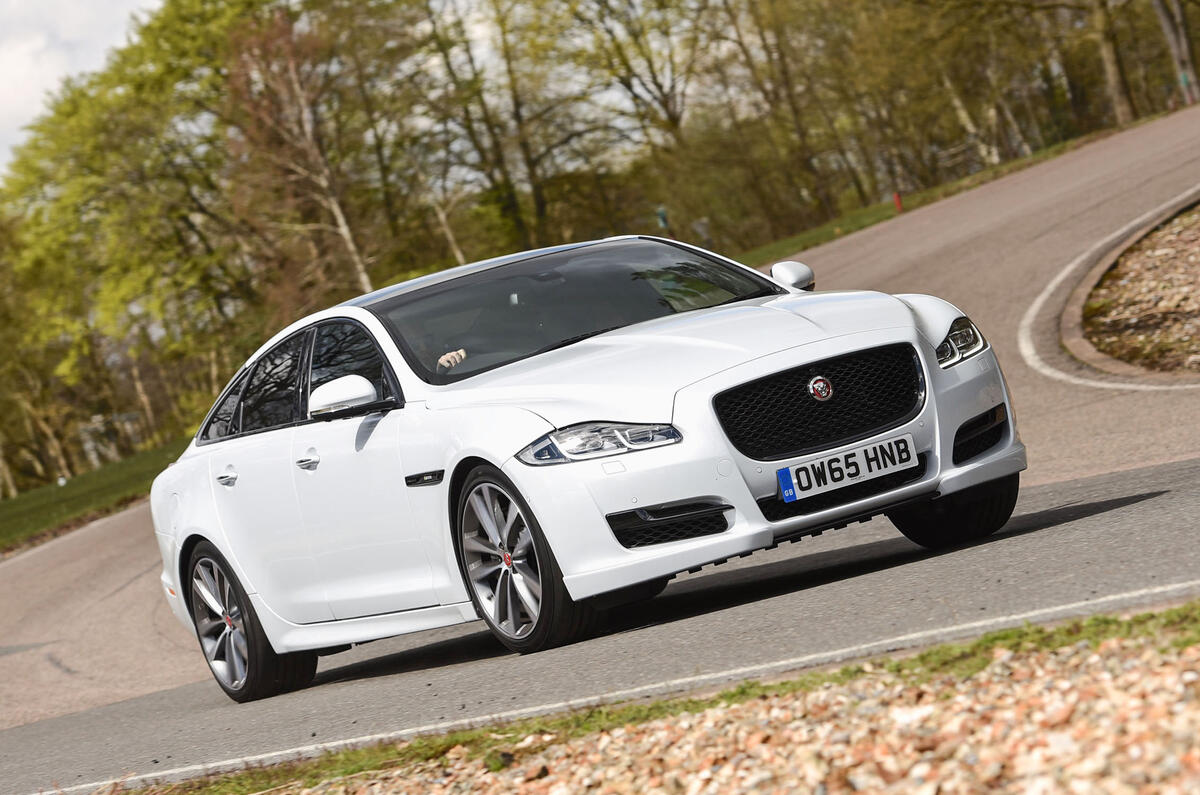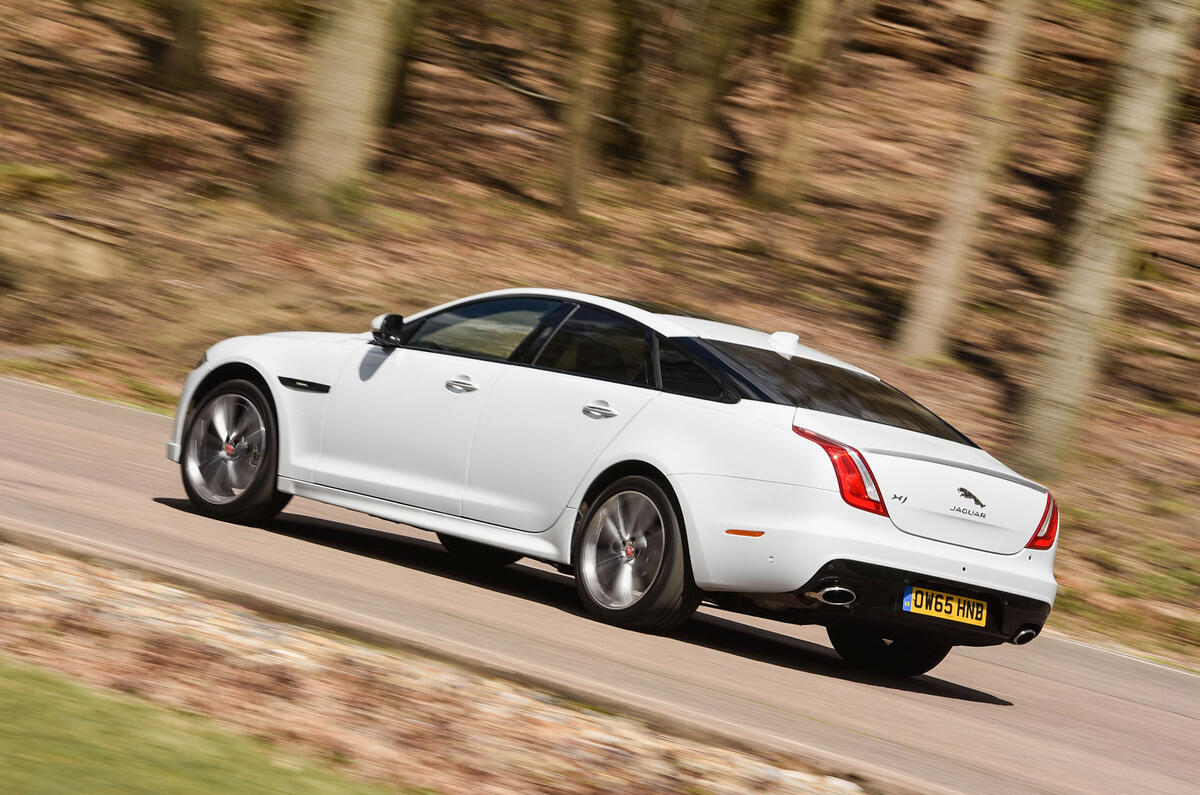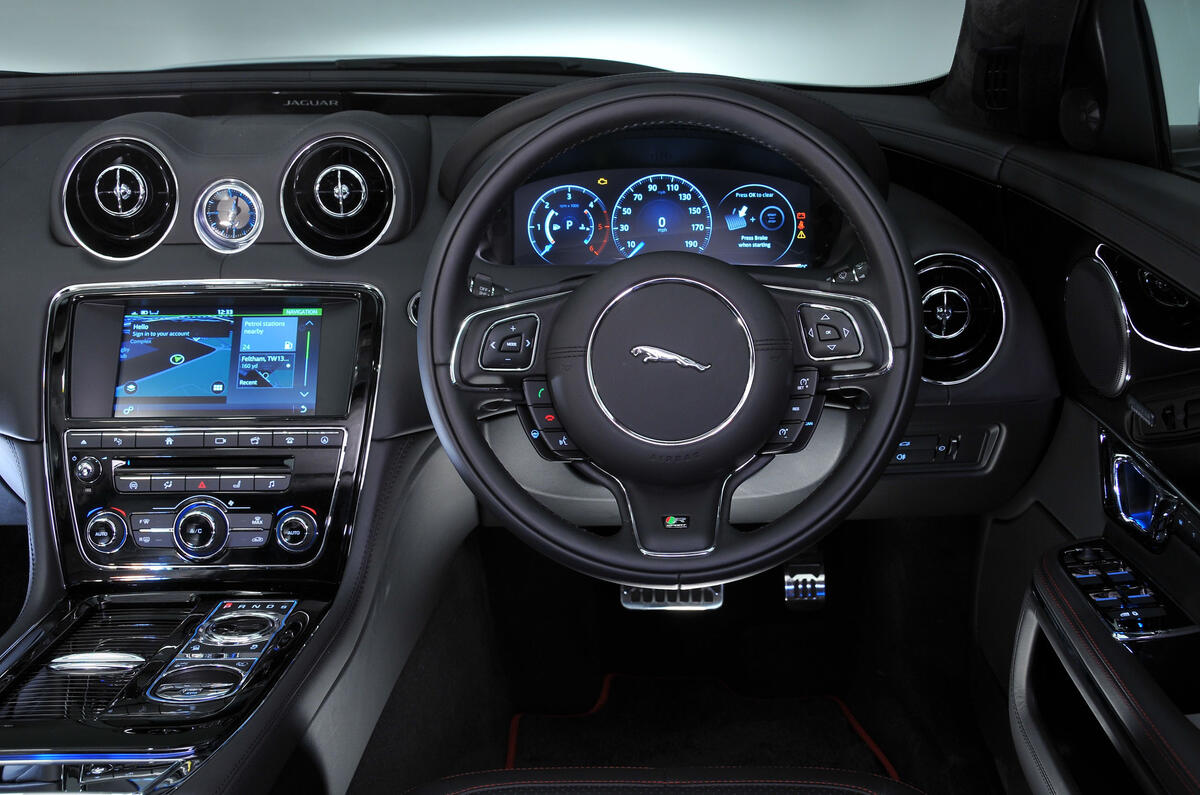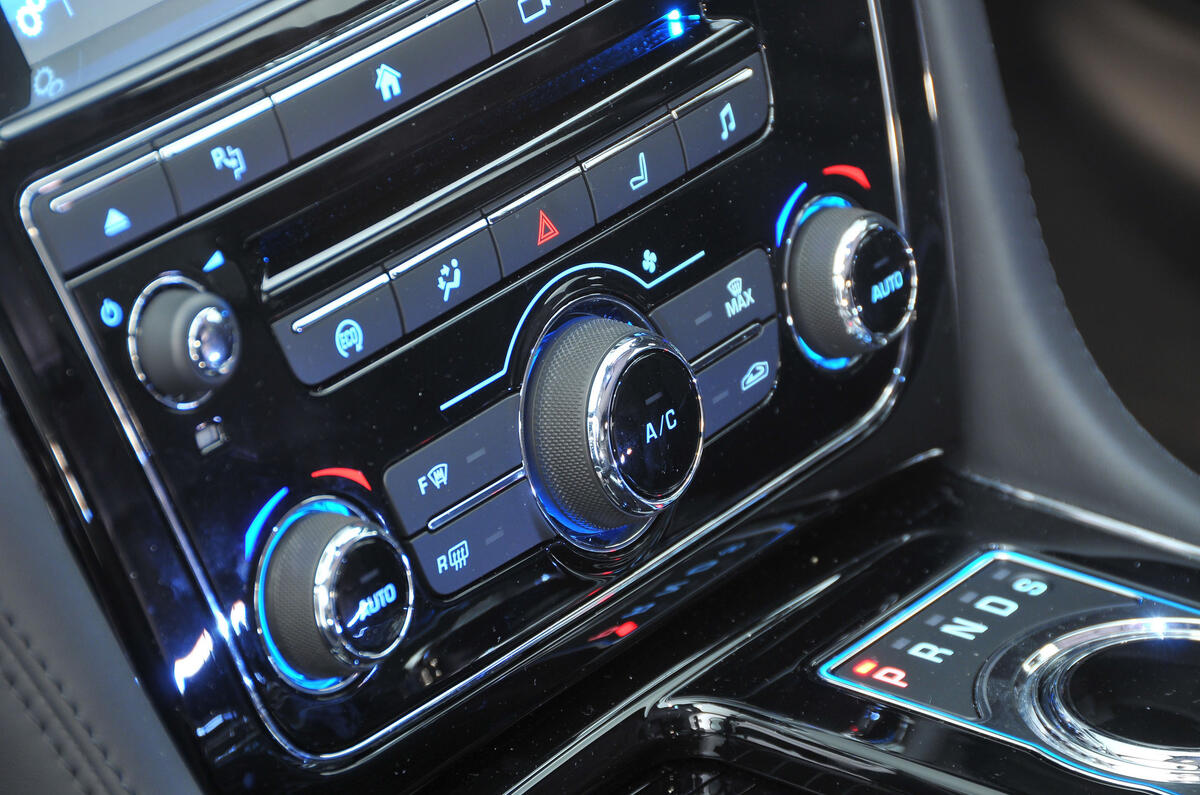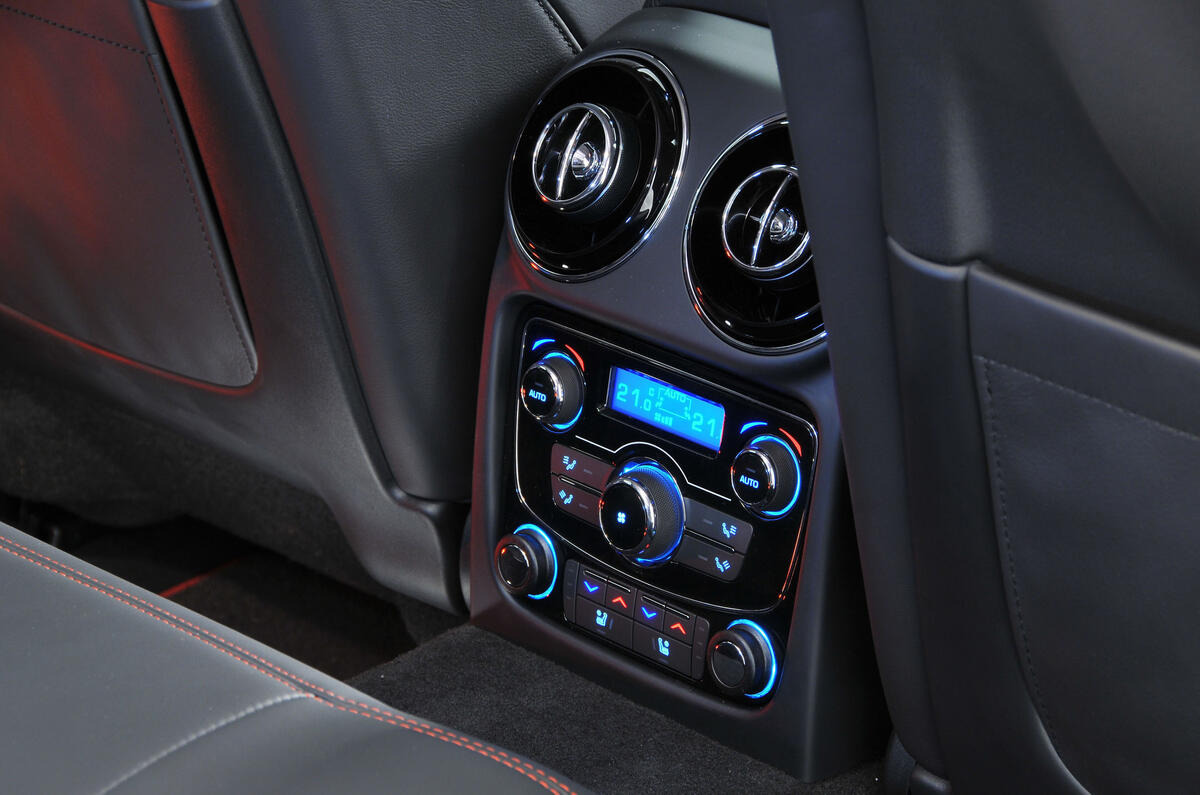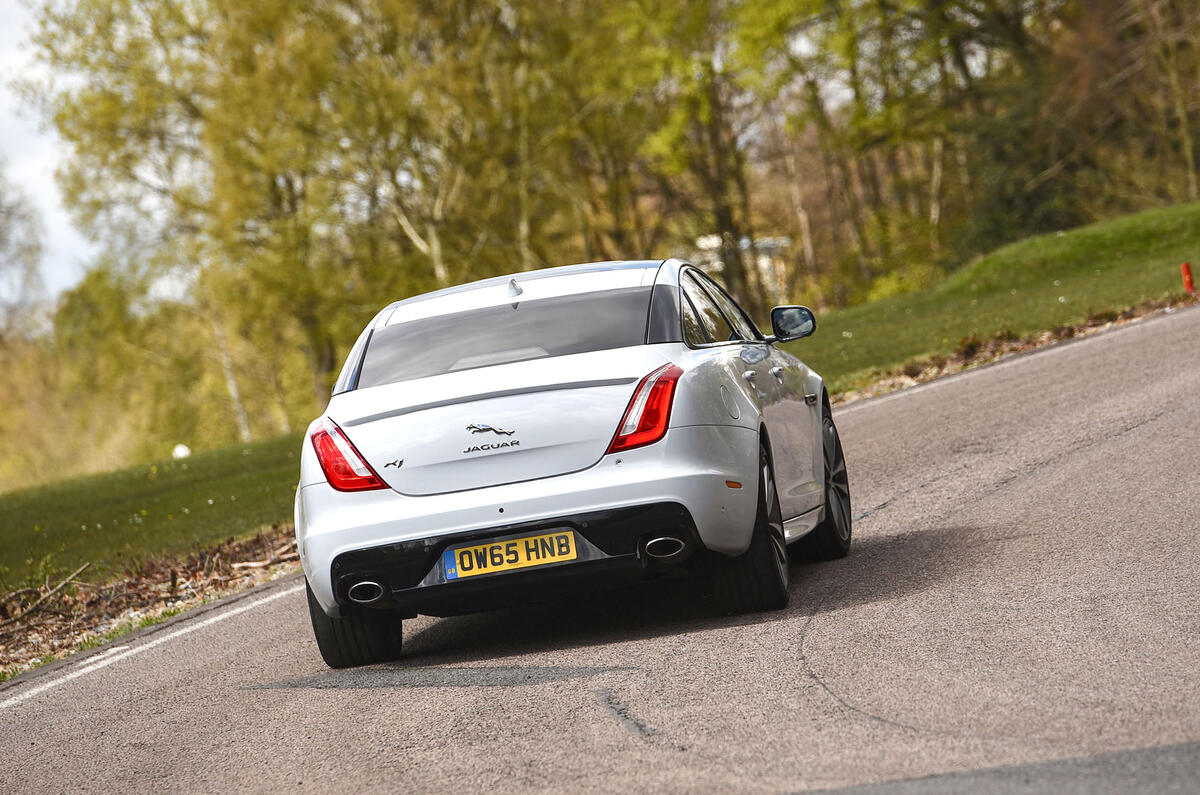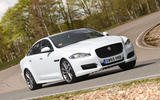It took a long time for Jaguar finally to wake up to what each of its German rivals had known for years: it’s all well and good having a high-output, big-capacity petrol flagship in your executive saloon range, but it’s diesels that sell. And when we tested the first diesel Jaguar XJ back in 2005, we wondered why Jaguar hadn’t done it sooner: the torquey 2.7-litre V6 delivered both the smoothness and response required of a big Jag.
The latest XJ gets a revised version of that original 2.7, now enlarged to displace 3.0 litres. While the same engine is available in the Jaguar XF in two states of tune, the XJ gets only the high-output version with 271bhp and 442lb ft. Which, unless you’re doing really high-speed autobahn work, will be plenty.
And even there the XJ needs just 12.4sec to accelerate from 110-130mph. If anything, our recorded 0-60mph time of 6.3sec somewhat undersells quite how effortlessly the XJ diesel adds speed in real-world use.
The naturally-aspirated 5.0-litre V8 has been replaced by a more efficient supercharged V6, which is also the core engine in the Jaguar F-Type range. The Jaguar XJ V6 SC offers 30mpg and 224g/km. As well as this, with 335bhp and 332lb ft, the XJ can still run to 60mph in less than 6.0sec and go on to 155mph. Despite being a great engine, offering both flexibility and character, the diesel remains our pick.
Topping the engine range in the standard XJ (there’s a Jaguar separate review on the hotter XJR) is a 503bhp supercharged V8 which develops 460lb ft between 2500 and 5500rpm. It’ll hurl the long-wheelbase XJ to 62mph in 4.7sec – quicker, indeed, than an entry-level Porsche 911. We've not timed it using our GPS equipment, but it feels every bit that fast. Top speed is still limited at the usual 155mph unless you opt for the go-faster Speed pack, which raises it to 174mph.



